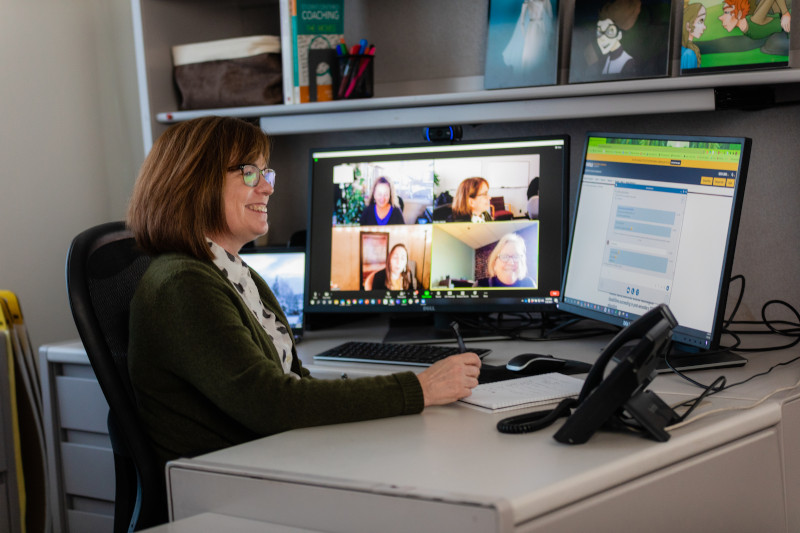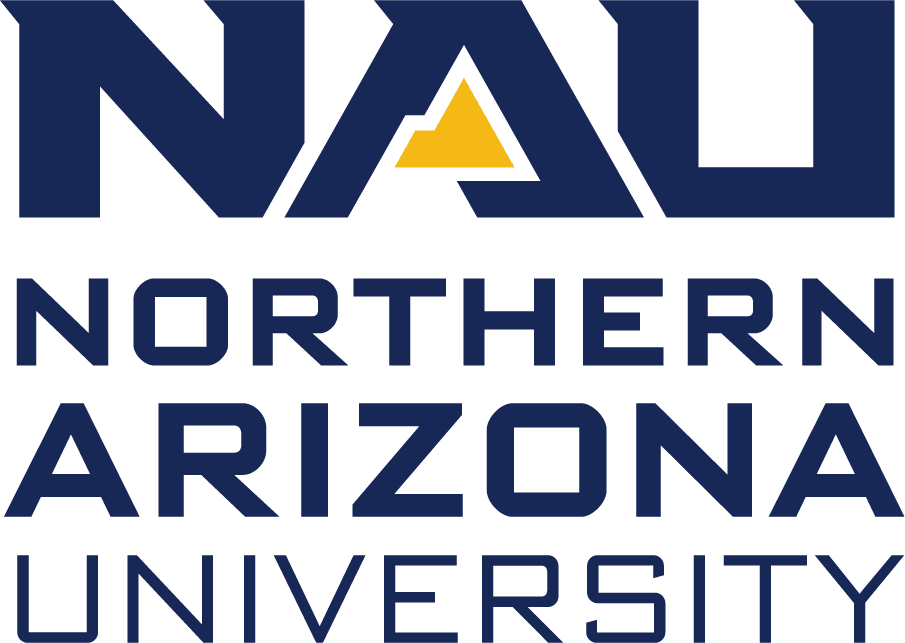Northern Arizona University’s Institute for Human Development is a regional leader in a new national alliance aimed at ensuring students with disabilities have access to and support in STEM fields.
It’s a critical area of focus in U.S. higher education, as people with disabilities are among the most significantly underrepresented groups in science, technology, engineering and mathematics (STEM) education and employment. According to the National Science Foundation, in 2016, 19.5 percent of undergraduate students reported a disability.
Students with disabilities face many challenges in STEM education and careers. The key reason these students cite for not pursuing STEM fields is that they perceive the careers associated with these majors would require them to perform hands-on activities that would be inaccessible to them—such as conducting experiments in laboratories or developing engineering prototypes.
To address these issues, the NSF launched a major national initiative in 2021, forming the NSF INCLUDES Alliance of Students with Disabilities for Inclusion, Networking, and Transition Opportunities in STEM, also known as the TAPDINTO-STEM Alliance. Using a collective impact approach, the alliance spans dozens of partner organizations working to increase the number of students with disabilities who complete associate, baccalaureate and graduate STEM degrees and enter the STEM workforce.
The NSF awarded Auburn University $10 million in funding to lead this effort to promote STEM education among students with disabilities and foster a more diverse workforce by improving educational opportunities for disabled students. The alliance’s goals are to increase the number of students completing STEM degrees at all levels; facilitate the transition of students with disabilities into the STEM workforce upon graduation; and enhance collaboration among institutions of higher education, industry, government, national labs and local communities in addressing the educational needs of students with disabilities in STEM disciplines.
NAU team serves as the Mountain Hub for national program
A team at NAU’s Institute for Human Development, led by associate professor Ronda Jenson, was granted a subaward by Auburn University to join the alliance and serve as one of five regional hubs collaborating to address this national need. Designated as the alliance’s Mountain Hub, the NAU team is working to expand the partnership across the Mountain West at institutions including University of Nevada at Reno and Utah State University and is planning to add several more institutions in the future. Jenson is a psychologist who has joint appointments in the College of Social and Behavior Sciences and the College of Education and leads several major research projects.
Ultimately, the collective impact of the alliance will empower postsecondary students with disabilities to succeed in STEM disciplines through increased opportunities for internships, apprenticeships and employment in the STEM workforce.
Mentoring and workforce development at the heart of the Mountain Hub effort
Students with disabilities at NAU are the key to the success of this initiative. TAPDINTO-STEM focuses on mentoring, specifically peer-to-peer and faculty-to-student mentoring. Over the summer of 2022, nine students forming the initial cohort developed the TAPDINTO-STEM program using guidelines developed by Auburn University.
“The students questioned power dynamics embedded in mentee/mentor relationships and considered identity from an intersectional lens,” program coordinator Jade Metzger-Riftkin said. “They wanted the program to suit all NAU students from any background with any disability.”
The NAU team also is using the NSF funding to conduct research related to enhancing workforce development opportunities for persons with disabilities and for engaging students in STEM, focusing on the unique issues faced by students with disabilities within the region.
“The research will use a lens of intersectionality, investigating disconnections and gaps between student experiences of bias, discrimination and stigma; the information and messaging available to faculty and staff of institutions of higher education as it pertains to inclusion and recognizing intersectionality; and the perceptions of faculty and staff of institutions of higher education that perpetuate bias, discrimination and stigma,” Jenson said.
To support these students in successfully completing their degrees, the NSF INCLUDES TAPDINTO-STEM Alliance also is providing professional development for faculty, staff and STEM professionals to increase their formal involvement, as mentors and research collaborators, with students with disabilities.
Other collaborators at NAU include Kelly Roberts, executive director of IHD and professor of education specialties; Jamie Axelrod, director of Disability Resources; Francisco Villa, clinical professor of chemistry, NAU Yuma; Arden Day, research associate; Michele Lee, research coordinator; Cynthia Beckmann, research coordinator senior; and Stephanie Del Giorgio, research coordinator.
Kerry Bennett | University Marketing




